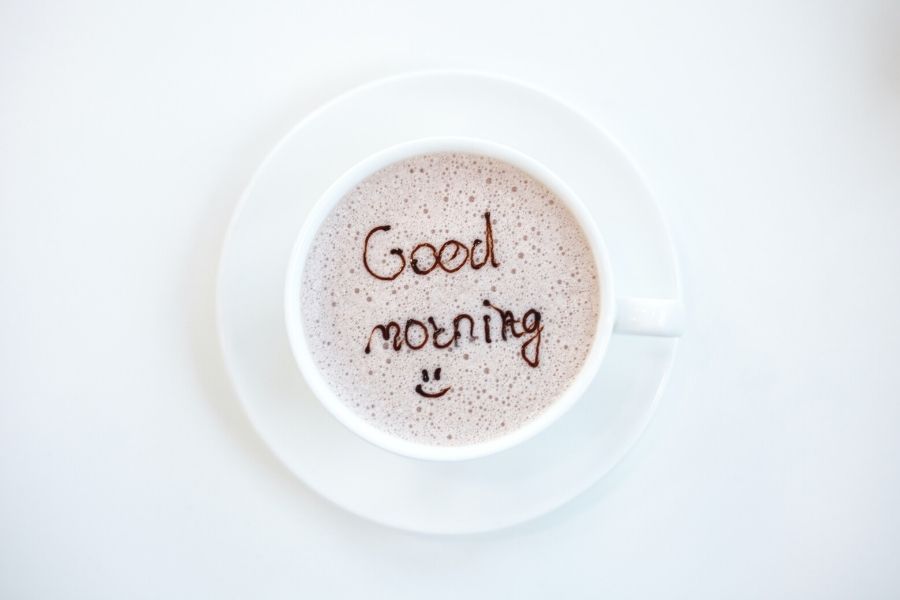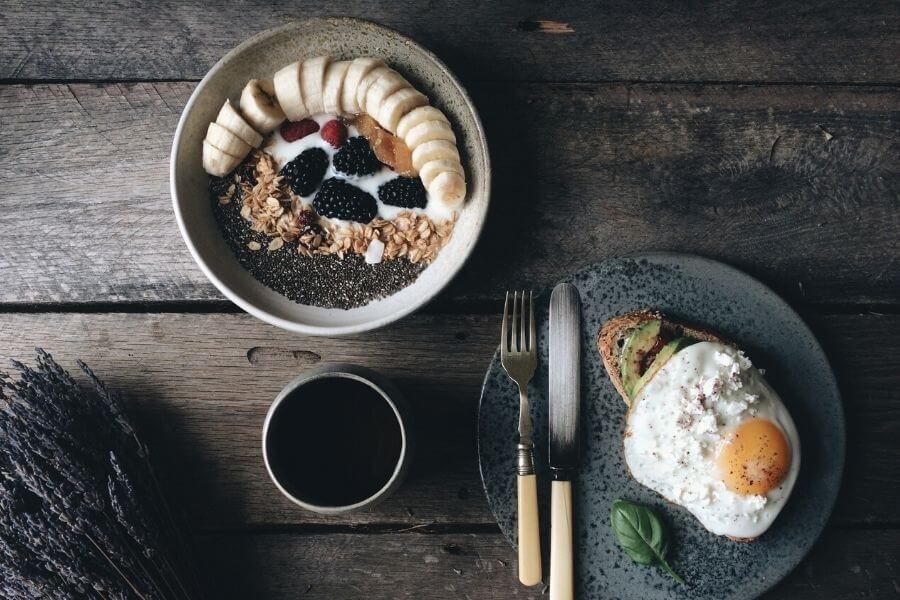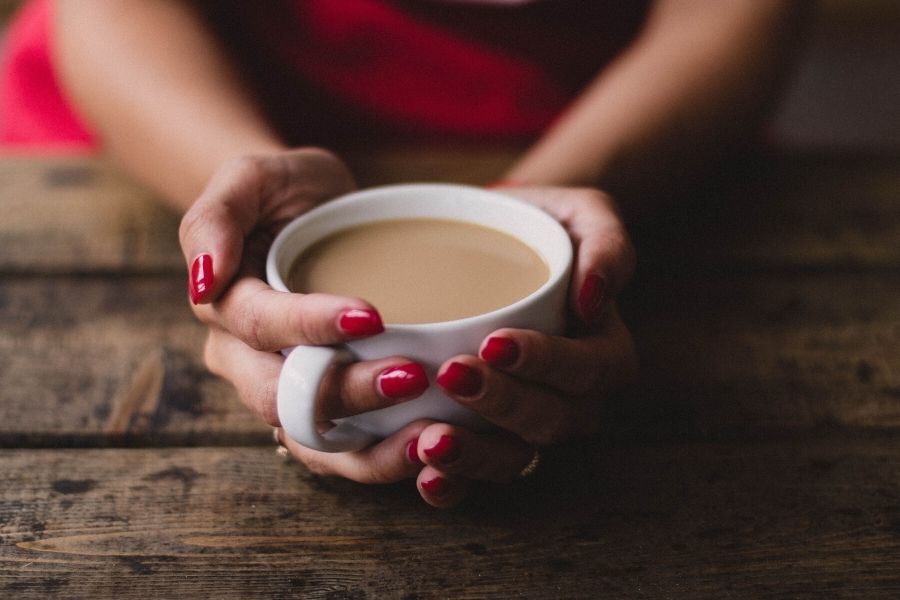When Is the Best Time to Drink Coffee?
As a bean lover, you’ve probably never asked yourself: “Should I drink coffee in the morning?
It’s more likely you follow the same morning pattern as many others: head for the coffeemaker as soon as possible.
That’s how you get each day started off right, right? Plus it’s hard to imagine not having that hot beverage immediately.
However, some research shows that drinking java immediately after waking might not be the best idea. As surprising as it sounds, waiting a couple of hours before downing caffeine might help your body get the most benefits.
So if you shouldn’t drink java first thing, when should you indulge your habit?
Here, we examine the best and not-so-best times of day to drink coffee according to science. The topics we’ll cover include:
The Science Behind Coffee and Time

Research behind the ideal time of day to drink coffee primarily revolves around cortisol, a hormone in the human body. Your body naturally produces cortisol and it has several nifty jobs. Cortisol helps regulate your metabolism and immune system, along with improving your ability to stay alert and focused.
When you get up each morning, your cortisol level naturally increases, which helps your body wake up. It’s not immediate, though, cortisol levels peak about 30-45 minutes after waking.
Not coincidentally, caffeine’s effects peak about 30-60 minutes after consuming coffee. So with or without a caffeinated beverage, your body will still wake up in roughly the same amount of time.
Caffeine increases cortisol levels, so by drinking caffeinated coffee immediately after waking, you increase your body’s cortisol levels beyond what’s normal. Over time, this may damage your immune system and may also teach your body to naturally produce less cortisol. In other words, you’re disrupting the body’s natural rhythm.
Approximately two to four hours after you wake is when cortisol levels naturally drop. That’s the perfect time to enjoy a cup of joe and get a little energy boost if you need one. Your productivity level will thank you.
The human body can take several hours to process caffeine. If you drink java throughout your day and into the evening, you may notice some difficulty falling asleep. For this reason, it’s advised that you avoid caffeinated coffee within six hours of bedtime.
Should I Drink Coffee on an Empty Stomach?
Maybe you’ve been told that you shouldn’t drink coffee on an empty stomach because it can cause heartburn or even an ulcer. That’s not entirely true, at least not for most people. Healthline even notes that it’s simply a myth.
While some research does suggest that the bitterness in coffee may increase the production of stomach acid, there’s not as much research linking java consumption to digestive issues as you may expect. Few people are so sensitive to coffee and acid that it causes digestive troubles. That said, if you do notice a connection, adjust your own coffee consumption accordingly.

The Best Time to Drink Coffee for Physical Performance
Caffeine is known to have a positive impact on physical performance, whether that means running a little faster or having more stamina. Caffeine is a stimulant, and that energy boost is reflected in your body’s physical capabilities.
Without getting too technical, an effective dose of caffeine equals about 200-400 mg. That’s about two to four cups of coffee, well within the recommended maximum of 400 mg daily. In order to maximize any boost in your performance, drink coffee about 30-60 minutes before you plan to exercise.
Times When You Shouldn’t Drink Coffee
Despite the line of thinking that there’s never a bad time of day for coffee, some times may be worse than others.
The bookends of the day — right after waking up and just before bedtime — are not the ideal times to drink coffee. When you first wake up, coffee may disrupt your body’s natural cycle and cortisol levels. Having coffee shortly before going to bed doesn’t allow enough time for your body to fully process that caffeine, and it may keep you awake.
If late-day caffeine consumption may be a reason you’re tossing and turning at night but giving up beans isn’t an option, there are some things you can try.
- Cut back on how much you drink. Instead of a large travel mug, try a smaller coffee cup.
- Recognize your usual bedtime and plan coffee consumption accordingly. As long as you’re okay with being awake until 11 pm, then sure, enjoy that cup of joe at 4:30 pm. However, if you know you should be asleep by 10 pm so you’ll feel rested, you’ll want to bump that coffee back a little.
- Try decaf! There are lots of great decaffeinated coffee options available now. Some of our favorites can be found here.

Some Final Thoughts
While we all know that one person who drinks coffee all day long — maybe it’s you?! — research shows that there are particular times when coffee confers the most benefits.
Many people automatically head for their coffee makers when they first wake, but that caffeine boost may be more helpful if you wait until mid-morning or a little later to enjoy a hot beverage. By working with your body’s natural cortisol production, you may find yourself more focused and better able to concentrate.
For those who rely on caffeine to help achieve a better workout, drinking coffee 30-60 minutes before exercising can improve your performance. However, much like working out late in the day might keep you awake at bedtime, indulging in coffee in the evening can interfere with your ability to sleep. Moderation is key!
When Is the Best Time to Have Coffee? FAQs
Is It Bad to Drink Coffee When You Wake Up?
In a way, it’s counterproductive to drink coffee immediately. Your body produces cortisol, and you’ll naturally start feeling more awake in 30-45 minutes, even without caffeine. If you wait a couple of hours until your cortisol level drops, you’ll benefit more from caffeinated coffee.
Can I Drink Coffee at Night?
While some people can enjoy coffee at any time of day without repercussions, you may find that drinking coffee late in the day makes it difficult to sleep soundly. There’s no rule that says you can’t drink coffee at night, but if you enjoy a solid sleep, you may prefer to limit your caffeine intake after 3 pm.
How Long Before Bed Can I Drink Coffee?
Most experts recommend avoiding coffee after 3-5 pm in the afternoon, particularly if you are sensitive to caffeine.
Is It Better to Have Coffee in the Morning or Afternoon?
Why not both? According to some research, the best times of day for enjoying coffee are between 9:30 am and 11:30 am, and then from 1:30 pm to 3 pm.
How Long Does It Take for Coffee to Hit?
The effects of coffee are generally felt within 30-60 minutes. After this period, caffeine, the active stimulant in coffee, starts working on your body’s central nervous system and you feel an energy boost, aka the ‘hit.’
Can Caffeine Affect You 12 Hours Later?
If you are sensitive to caffeine, yes. The half-life of caffeine is about five hours, which means your body still contains about half the caffeine from that 8 am cup of coffee at 1 pm.





